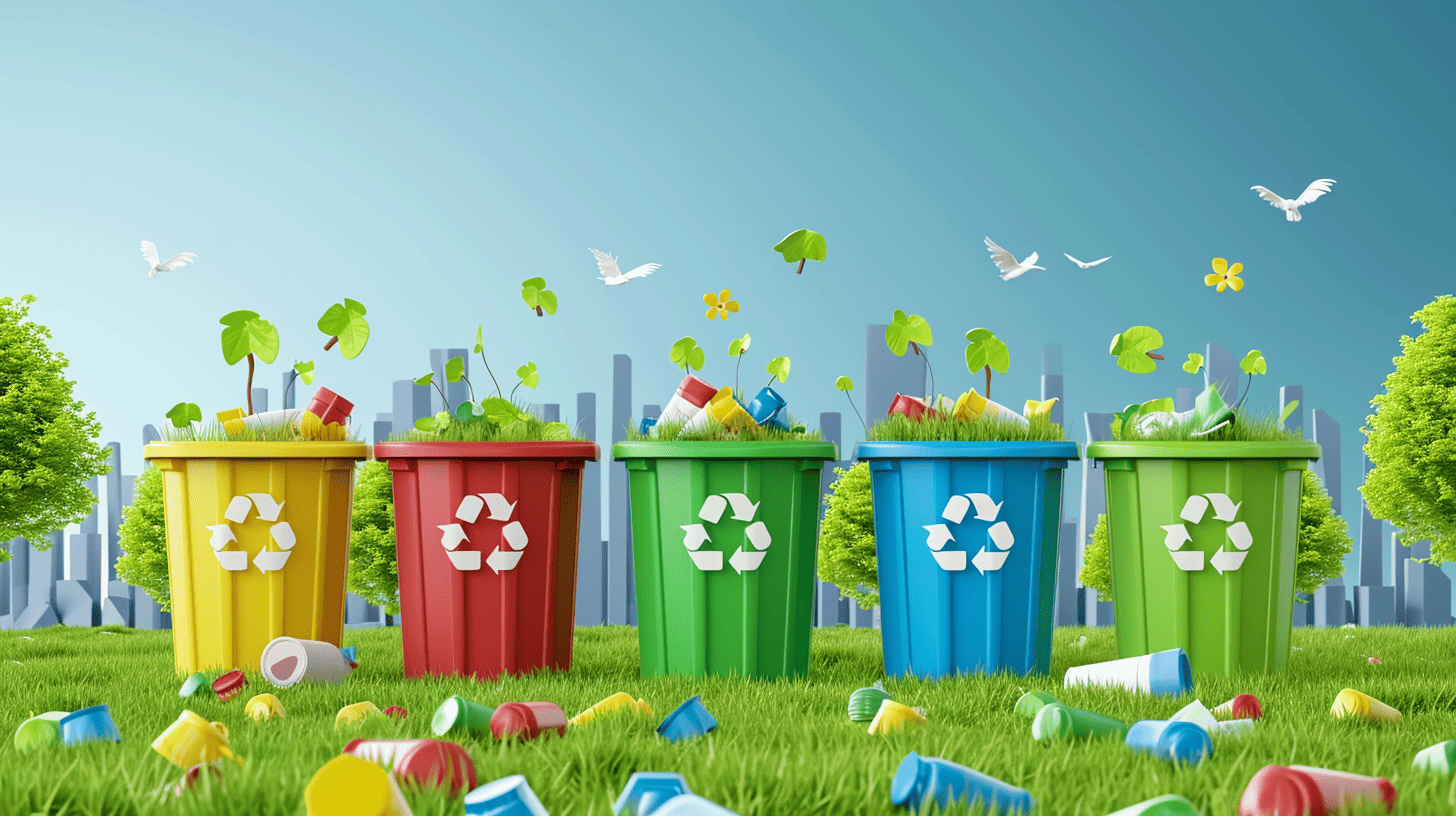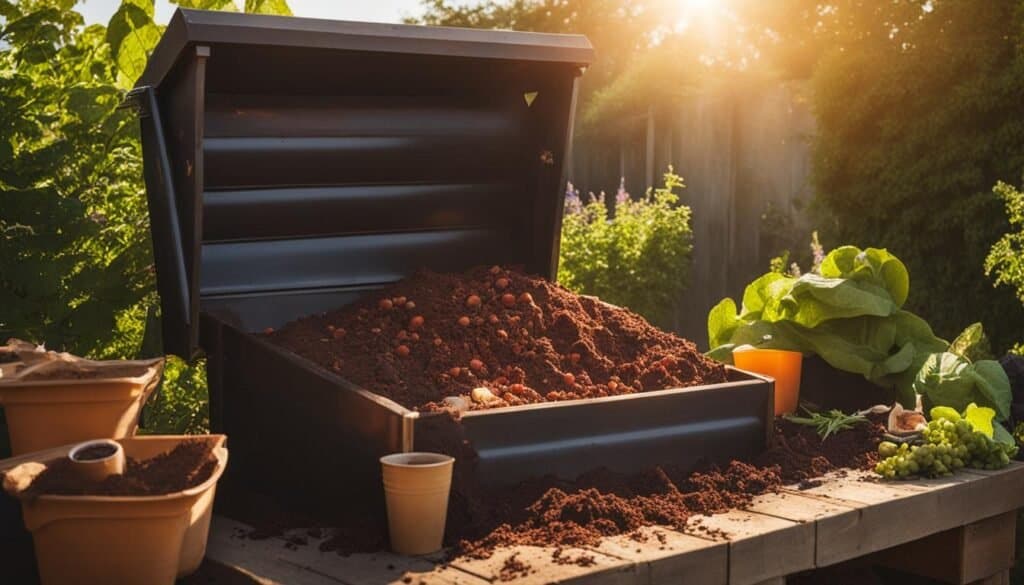


As an environmentally conscious individual, I understand the importance of implementing eco-friendly waste disposal methods. By embracing sustainable waste management practices such as recycling, composting, reusing, and reducing, we can contribute to a greener and healthier future for our planet. In this article, we will dive into the realm of eco-friendly waste management techniques and unveil how these methods can help us preserve our environment for generations to come.
Table of Contents

Setting up a home compost system is an easy and effective way to manage and reduce organic waste. To create an optimal compost pile, first find a suitable location in your yard. To begin the process, create alternating layers of green materials (such as food scraps, coffee grounds, and tea bags) and brown materials (like dried leaves, twigs, and grass clippings). This mixture, coupled with oxygen and moisture, allows beneficial microorganisms to break down the materials into simpler forms, producing nutrient-rich compost.
Composting reaps numerous benefits for soil and plant health. This organic matter:
Thus, integrating compost into your garden soil not only reduces waste but also supports healthier, more vigorous plant growth.
Community composting initiatives unite neighborhoods in the effort to reduce waste and its environmental impact. These programs offer convenient drop-off sites for participants to dispose of their kitchen waste, while also supplying ready-made compost for personal use. The table below highlights the benefits of community composting programs:
| Benefits | Examples |
|---|---|
| Waste reduction | Decrease in organic waste headed to landfills |
| Environmental awareness | Participants become more mindful of waste disposal and sustainable practices |
| Resource sharing | Compost is made available for community members to utilize in their gardens |
| Social collaboration | Neighborhoods come together to work towards a common goal, fostering a sense of community |
Ultimately, composting organic waste is an accessible, effective way to reduce landfill burden, foster healthier soil, and contribute to a sustainable future. Engaging in composting practices, whether individually or within a community, paves the road to environmental consciousness and collective greener living.
In our pursuit of a sustainable, green future, embracing eco-friendly waste disposal methods is essential. We can make a lasting impact by diligently practicing waste reduction, recycling, composting, and adopting greener habits. These eco-friendly initiatives not only help lessen our environmental impact but also foster a healthier environment for future generations.
Furthermore, the potency of community engagement and education cannot be overstated. By raising awareness and inspiring collective action, we lay the foundation for an eco-resilient society committed to preserving our planet. This spirit of active environmental stewardship cultivates a harmonious balance between economic growth and ecological preservation, paving the way for a more sustainable future.
Ultimately, our environmentally conscious decisions fuel the momentum towards a world where environmental integrity and human civilization can thrive, side by side. As we diligently embrace and practice eco-friendly waste management, we hold the key to unlocking a healthier, greener world for ourselves and generations to come.
A: Some eco-friendly waste disposal methods include recycling, composting, reducing waste, reusing items, and proper hazardous waste disposal.
A: You can manage waste for a greener future by practicing waste reduction, using environmentally friendly waste disposal methods, and disposing of waste without harming the environment.
A: Waste reduction is important as it helps minimize the amount of waste sent to landfills, reduces the carbon footprint, and promotes a healthier environment.
A: You can dispose of waste without harming the environment by opting for environmentally friendly waste disposal methods such as composting, recycling, and proper hazardous waste disposal.
A: Common types of waste that need environmentally friendly disposal include plastic waste, municipal solid waste, and hazardous waste that should be managed using eco-friendly methods.
A: Garbage disposal units can help in managing waste by breaking down large waste into smaller particles, which are suited for common kitchen waste and can be disposed of properly.
A: You can bring environmentally friendly waste disposal methods into your home by incorporating recycling bins, composting systems, and using eco-friendly waste disposal units.
A: Hazardous waste disposal refers to the proper management and disposal of waste that poses a threat to human health or the environment. It is important to prevent these wastes from harming the ecosystem.
A: Waste disposal methods can reduce the carbon footprint by promoting the use of eco-friendly practices, reducing the release of carbon in the waste, and minimizing the impact on the environment.
A: Four ways of environmentally friendly waste disposal include recycling, composting, reusing items, and using garbage disposal units that promote eco-friendly waste management.